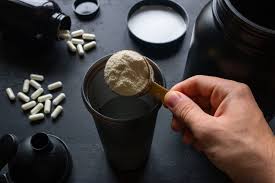
Breaking News
 Microsoft Hands Over Encryption Keys #fyp #technews #microsoft #computer #secure
Microsoft Hands Over Encryption Keys #fyp #technews #microsoft #computer #secure
 Windows Now Requires Age Verification? #fyp #technews #windows #microsoft #privacy
Windows Now Requires Age Verification? #fyp #technews #windows #microsoft #privacy
 Iran's new supreme leader is named as Ali Khamenei's son Mojtaba - Iranian TV network report
Iran's new supreme leader is named as Ali Khamenei's son Mojtaba - Iranian TV network report
 Bill Pervs Out Over Epstein Memories, Hillary Goes Berserk, And They Both Lied: Top Viral Moments...
Bill Pervs Out Over Epstein Memories, Hillary Goes Berserk, And They Both Lied: Top Viral Moments...
Top Tech News
 US particle accelerators turn nuclear waste into electricity, cut radioactive life by 99.7%
US particle accelerators turn nuclear waste into electricity, cut radioactive life by 99.7%
 Blast Them: A Rutgers Scientist Uses Lasers to Kill Weeds
Blast Them: A Rutgers Scientist Uses Lasers to Kill Weeds
 H100 GPUs that cost $40,000 new are now selling for around $6,000 on eBay, an 85% drop.
H100 GPUs that cost $40,000 new are now selling for around $6,000 on eBay, an 85% drop.
 We finally know exactly why spider silk is stronger than steel.
We finally know exactly why spider silk is stronger than steel.
 She ran out of options at 12. Then her own cells came back to save her.
She ran out of options at 12. Then her own cells came back to save her.
 A cardiovascular revolution is silently unfolding in cardiac intervention labs.
A cardiovascular revolution is silently unfolding in cardiac intervention labs.
 DARPA chooses two to develop insect-size robots for complex jobs like disaster relief...
DARPA chooses two to develop insect-size robots for complex jobs like disaster relief...
 Multimaterial 3D printer builds fully functional electric motor from scratch in hours
Multimaterial 3D printer builds fully functional electric motor from scratch in hours
 WindRunner: The largest cargo aircraft ever to be built, capable of carrying six Chinooks
WindRunner: The largest cargo aircraft ever to be built, capable of carrying six Chinooks
What Every Gym-Goer Should Know About Pre-Workout Supplements

Across the country, gym-goers scoop powder into shaker bottles, chasing a last burst of energy to fuel evening workouts. Pre-workout supplements, called "pre-workouts," promise a better workout through energy-enhancing ingredients.
Once the domain of bodybuilders, pre-workouts have gone mainstream, driven by social media, flashy marketing, and late-night training trends. Nearly 80 percent of regular gym-goers now use them, according to industry data.
As casual lifters join elite athletes in using pre-workout supplements, a more complicated picture emerges. The gains may be real, but are they worth the trade-offs?
What Are Pre-Workouts?
Amid neon tubs boasting "Explosive Energy," "Insane Focus," and "Pump Booster," it's not always clear what pre-workouts actually are.
Pre-workouts are powdered supplements mixed with water and taken before exercise. They offer a jolt of energy, sharper focus, and more stamina—a caffeinated cocktail for the fitness crowd.
"It is often recommended to ingest the supplement 30–60 minutes before exercise with the goal of improving the quality of your workout—i.e., increased energy, focus, delayed sensations of fatigue, [and] improvements in muscular endurance or strength," Andrew Jagim, a sports medicine researcher at Mayo Clinic Health System, told The Epoch Times.
With consistent use and structured training, he noted, pre-workouts may contribute to greater gains in strength and muscle mass compared to training alone.
While pre-workouts may enhance energy and endurance, they aren't a magic bullet.
"Pre-workout is not a shortcut to success," Dr. Gabrielle Lyon, a physician specializing in muscle-centric medicine, told The Epoch Times. "It's not a replacement for sleep. It's not a stand-in for strategic nutrition or consistent training. If your baseline isn't solid, no supplement will carry you through."
What's in the Scoop?
Most pre-workouts pack a mix of performance-boosting ingredients—often with 15 or more per tub. Caffeine leads, providing energy. Beta-alanine delays fatigue. Creatine boosts strength and power. Vasodilators like citrulline and nitrate improve blood flow and fuel the post-lift "pump." Some formulas add vitamins like B-complex or C. Others include nootropics—compounds believed to enhance mental function—like tyrosine or alpha-GPC, aimed at sharpening focus and improving mood.
However, there's no standard formula, leaving consumers guessing amid a sea of options. The most common ingredients include:
Caffeine—Well-studied and effective: Caffeine is the most studied and most reliable pre-workout ingredient. According to the International Society of Sports Nutrition, it can offer small to moderate boosts in everything from endurance and strength to sprinting and jumping.

 RNA Crop Spray: Should We Be Worried?
RNA Crop Spray: Should We Be Worried?

